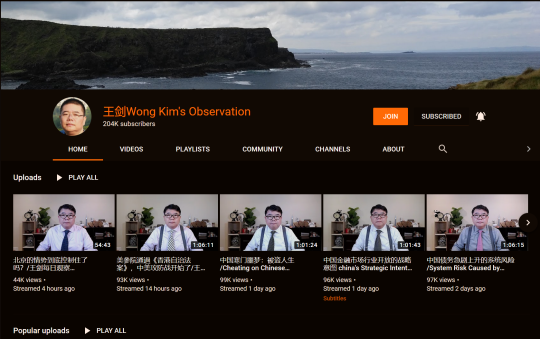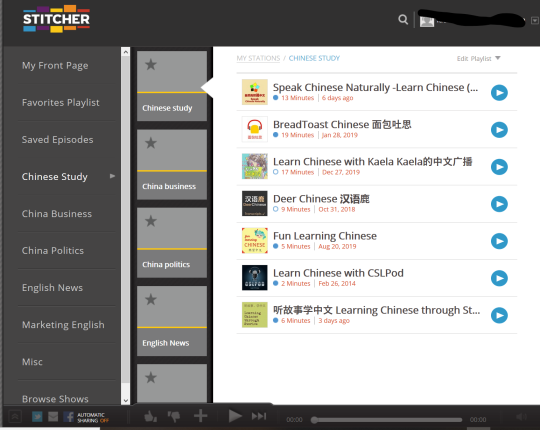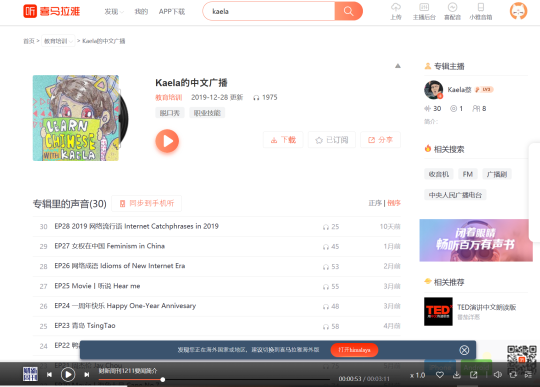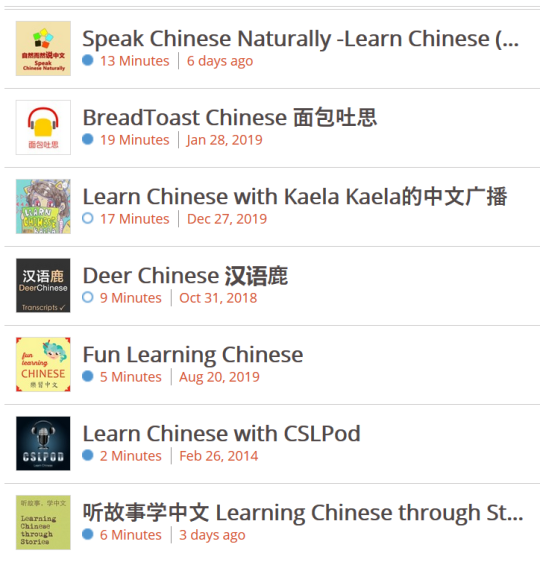#chinese learning
I really want to find someone I can practice my Mandarin with lol. My spoken/listening skills are starting to take a noticeable hit compared to my reading skills. now if only half the websites that said they were for language exchange actually worked lol
The adverb “从来” (cónglái) indicates something has always been like this from the past to the present. It is usually used in negative sentences. For example:
- 我从来没去过美国。
- 她的健康从来都不好。
- 谢谢,我从来不抽烟。
- 老张这个人开会从来不迟到。今天到现在还没来,可能是有什么事情,你打个电话问问他吧。
- 虽然我们认识的时间不长,但我从来没这么快乐过。
- 这家面馆儿从来只卖一种东西: 牛肉面。因为面做得很好吃,而且不贵。很多新客人变成了老客人,老客人又带来更多新客人。
“读书好,读好书,好读书”。虽然这句话用了三个相同的汉字,但是不同的顺序却表示了不同的意思。首先,” 读书好” 说的是读书有很多好处; 其次,每个人的时间都是限的,不可能把世界上每一本书都读完,所以要读好的书; 最后,”好读书” 就是要养成阅读的习惯,使读书真正成为自己的兴趣爱好。阅读有许多好处,它能丰富你的知识,让你找到解决问题的办法; 同时,它还会丰富你的情感,使你的生活更精彩。所以,让阅读成为你的习惯吧!

What‘’s it like being a mother in China?

In China, most of the childcare still falls predominantly on the women as motherhood is seen as a woman’s business, and it’s a tough one! Education We all agree that education is the best tool you can give your child to help them succeed in the future, that is an understatement in China. Education is everything! It’s a widely held belief by all parents in China, education will ensure a better…

The popularity of homeschooling has increased tremendously over the years. In the US there are close to 2.5 million children currently being taught from home. It’s no wonder as research into homeschooling has found that homeschooled children achieve high scores on standardized tests, are better self-directed learners with better EQ values, and that in turn makes them reliable employees and…
Getting kids interested in a second language

A recent research done in the United Kingdom by the newspaper “The Guardian” found that over the last decade a higher percentage of students were dropping second language acquisition from their high school curriculum. They deemed it too hard, uninteresting, and useless, and if given the chance legally they would have dropped their language subject earlier. They felt that the curriculum provided…

when someone speaks fluent Chinese to you
Overview:

This is a 自媒体 talk show abouteconomy and politics. I really enjoy the format of the videos and Wong Kim speaks very clearly and methodically that his videos keep you interested.
Access the resource:
https://www.youtube.com/channel/UC8UCbiPrm2zN9nZHKdTevZA
Whats good about it?
- Updated twice daily, videos are 1 hour long, the news analysis section is about 30 minutes
- Some videos include subtitlesthat you can select in either English or Chinese
- The format of each video is the same, discussion of a topic and then an analysis of the news and then discussion with viewers at the end. Once you listen to a few videos you’ll become familiar with the format
- Keep up to date with current events as well as improving Chinese.
On a side note:
Whenever you watch news, of course every media outlet has their own stance/position so I encourage everyone to listen widely to differing opinions to really understand Chinese culture/politics (a journey I am currently on too!). Remember the majority of opinions ‘inside the wall’ will be different to those ‘outside’. I will try to share both types of resources. I also will try to share western media that has Chinese news outlets as well as in my recent journey of studying Chinese economy and politics I think listening to all differing voices is very important to form your own understanding!
You may all know the TV series 非诚勿扰 but, whilst searching for some episodes of that show to watch whilst eating my dinner, I stumbled across this film. It was quite enjoyable and I think upper intermediate appropriate, there is nothing too specialized. You can watch the film below, unsubtitled. However if you are able to access Chinese media sites you can find subtitled versions.
#listeningresources #upperintermediate #film
If you don’t have anything to do on a Friday night, I recommend this film… happy weekend :)
非诚勿扰
Here are recent podcasts I have discovered that I think are suitable for intermediate learners. They are 100% or 99% in Chinese and are suitable to listen when you are on the bus, cleaning your room or eating your dinner (basically, great for studying in that ‘fragmented time’)
Additionally, if you find the RSS code for each podcast you can add it into the Feedly app so you can easily organise in one place and listen on your phone. I can do a tutorial on this if you’d like?
左右汉语 Intermediate Chinese
This podcast is presented by a single host and discusses a new phrase or chengyu in a natural way with many example sentences. It’s good for easy listening whilst learning something useful along the way.
https://podbay.fm/podcast/1195293457
iMandarinPod
This has resources for beginner to lower advanced. It has great dialogues with explanations and new vocab for the intermediate classes. The lower advanced podcasts are in the format of slow news segments, and the transcripts are available. The news segment resource is invaluable and something I’ve not seen elsewhere.
https://podbay.fm/podcast/214936144
Speak Chinese Naturally
This podcast is also in the format with one host and is essentially all in Chinese. Its an ongoing podcast and is updated regularly.
https://podbay.fm/podcast/1459401769
World Languages - discussions on Australia
I podcast that is no longer active, there are about 6 episodes discussing Australian culture in slow Chinese. It perfect for us who already are familiar with western culture but hearing it discussed in Chinese. It is easy to follow and a discussion between two hosts
https://podbay.fm/podcast/250276067
Bonus resource for lower intermediate learners:
Mandarin / English
This is a bilingual podcast (an English native speaks English and a Chinese speaks Chinese). The discussions are interesting and not so ‘boring beginner’ topics that all podcasts discuss and become very samey. For example, one episode discusses Investing. Because there is one host speaking English you can keep up with the more difficult content and makes for easy listening. To be honest, I’d prefer if the Chinese host spoke more but it’s about even, but otherwise its a great podcast all in all.
Podcasts are simply the best way to squeeze in study time into busy schedules. Doing any sport, doing groceries, walking to/from school and work, extra time can be squeezed in (I always think back to the analogy with the stones, pebbles, sand and water in a cup, remember that post by Hacking Chinese?).
Below is some Intermediate to advanced appropriate listening material. If you have any suggestions don’t hesitate to contact me!
By the way, I am thinking of creating an Instagram account, is that anything you are interested in? Let me know!!
Podcast software/Apps:
Stitcher, Spotify and Ximalaya all have mobile apps and desktop versions for easy syncing.



Podcast Shows:
Ximalaya Podcasts:
- 青春逗[this show is presented by two 海归 (Chinese returnees, i.e. two Chinese who have lived abroad and come back to China), therefore they sometimes mix English words within the podcast. It is a contempary topic discussion podcast, spoken in natural language between the two presenters and sometimes a third guest] https://www.ximalaya.com/shishang/18796952/
- Linda讲故事 [naturally spoken language, one person retelling a story, natural and unscripted] https://www.ximalaya.com/qinggan/29392148/
- 健康生活100问 [has a question about nutrition and it answers the question in 3-5 minute short episodes, for example ‘is MSG really bad for health?’, 'which is healthier, cow milk or soy milk?’] https://www.ximalaya.com/jiankang/18734760/
- 故事FM [each episode has a different person come to tell their story about some kind of topic, such as being abused, quitting a 'top school’, and other stories that tell lives of very ordinary people but presents a picture of lives of ordinary chinese people with a story to tell. It’s also spoken in natural, unscripted language with a host] https://www.ximalaya.com/toutiao/7878702/
- 失眠小姐[Short 3-5 minute 'life advice’ to soft background music] https://www.ximalaya.com/qinggan/292190/
- 唐诗三百首 [Learn the 300 Tang Poems] https://www.ximalaya.com/ertong/16479532/
- Kaela的中文广播 Learn Chinese with Kaela [a naturally spoken podcast presented by Kaela, transcripts for the show found at https://gaerdan.wordpress.com/ https://www.ximalaya.com/jiaoyu/16634873/
Stitcher Podcasts:
Simply search the below podcasts in your podcast app

Misc Podcast Websites:
These podcasts you can access through the podcast website (the ones with *s are ones I have used and are very good, its worth spending time on the website, you can download the MP3s to your phone)
o https://www.slow-chinese.com/podcast/*
o http://justlearnchinese.com/mini-novels/
o https://mandarinbean.com/category/advanced/
o http://justlearnchinese.com/category/chinese-short-stories/
Do you have anymore? Please share in the comments!
Studyblr/langblr Tips #1: How to study Chinese on YouTube/B站 (哔哩哔哩) using only your phone
Sometimes we are busy/no access to a desk, pen, paper or Computer but still want to study. This is how I Study bilibili videos when I only have my phone with me (such as being on a train etc.)
Firstly I set my phone to Autoroate and then split the screen. On the left is bilibili and a video I have chosen to study.
Another tip; bilibili has a function that allows you to listen to the video when the phone is off, and works like an audio, therefore I often listen to. Video material a few times before this step of. Noting the new vocab so I am already familiar with the content.
In another post I will recommend some good Bilibili users and study tips! Please stay tuned :)))
If you have any questions don’t hesitate to ask in my ask box

Hi all
Please see my list of resources and method for listening practice:
Podcast resource links:
Free with transcripts:
*https://www.slow-chinese.com/podcast/
http://justlearnchinese.com/mini-novels/
*https://www.learningchinesethroughstories.com/
Not free:
No transcripts:
Other video resource tips:
YouTube has a lot of individual user content, a bit like the sort of make up tutorial videos you may enjoy or best is users who create those ‘tag’ videos, daily vlogs or ‘story time’ videos… such as the video below. It is best as it is natural, unscripted spoken language.
As a female that’s the sort of content I like to see and I’m sure there is content geared for people who don’t really watch make up videos etc. (if anyone could suggest more ‘male oriented content’ in the comments that would be useful too :)
On YouTube videos you can slow down the speed on the video to x.75 under settings.

Another useful tool for MP3s is an app such as Audiopo which slows down/speeds up mp3 files that you have on your phone (https://play.google.com/store/apps/details?id=jp.ne.sakura.ccice.audipo&hl=en) [see my previous post for a demo].
How to study with the audio/video resources:
I use a similar fashion for studying audios as with reading [see my previous post] and will make a detailed future post. Essentially, I post a transcript and listen several times to the audio (whilst cooking, walking, doing sport etc.) and then read the transcript once I am familiar with the audio, highlight unknown words and add to Anki for my daily vocab review, continue to listen to audios and archive at the end of the week. [I do all this using OneNote and you can see exactly how I use it in my ‘reading’ post!
If you have any useful resources or tips for efficient language learning please feel free to share :D :D
